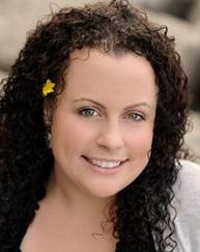
Implementing an advanced care planning curriculum for pediatric nurses
Carolyn Wilson
RN, BScN
Award: AMS/RNAO Fellow
Co-Sponsor: Holland Bloorview Kids Rehabilitation Hospital
- Medical education and curricula
Discussions on advanced care planning (ACP) early in a child’s disease process can relieve suffering and focus on quality of life (CPS, 2008). As per the National Guideline Clearinghouse (2016), children with life-limiting conditions and their carers have a central role in the decision-making process and care planning and therefore benefit from open and consistent communication. It is recommended that individuals and families are reassessed on a regular basis to identify goals of care and changes in care needs (RNAO, 2002). As well, understanding their comprehension about what is changing and what the trajectory of life looks like has been found to be best practice (RNAO, 2002).
The goal of this fellowship is to create an ACP curriculum for nurses specific to children with complex medical needs and life limiting illnesses. This curriculum will educate nurses on ACP including how to have effective, therapeutic conversations. There is currently no education on ACP or end of life care available at HB. Many nurses have reported being asked difficult questions by parents, such as, “Did I make the right choice”. As the RNAO (2002) states, “The nurse must acquire the necessary knowledge to participate effectively in therapeutic relationships”. This curriculum on ACP will provide nurses with the appropriate language, knowledge and tools to have important conversations to support therapeutic relationships and discussions on ACP. Part of HB’s strategic plan is providing meaningful care to families and patients, as the CPS states, discussions on ACP can relieve suffering and focus on quality of life. As well, ACP education will build the nurse’s confidence as a member of the team that accompanies families in their journey of ACP.
This project will be family centered, goal-directed and engage frontline staff at all points of the development. Guidance will be given from the mentorship team on the design, implementation and the evaluation of the curriculum. The RNAO’s BPG’s on Establishing Therapeutic Relationships and End-of-life Care During the Last Days and Hours will be used to support this objective.

